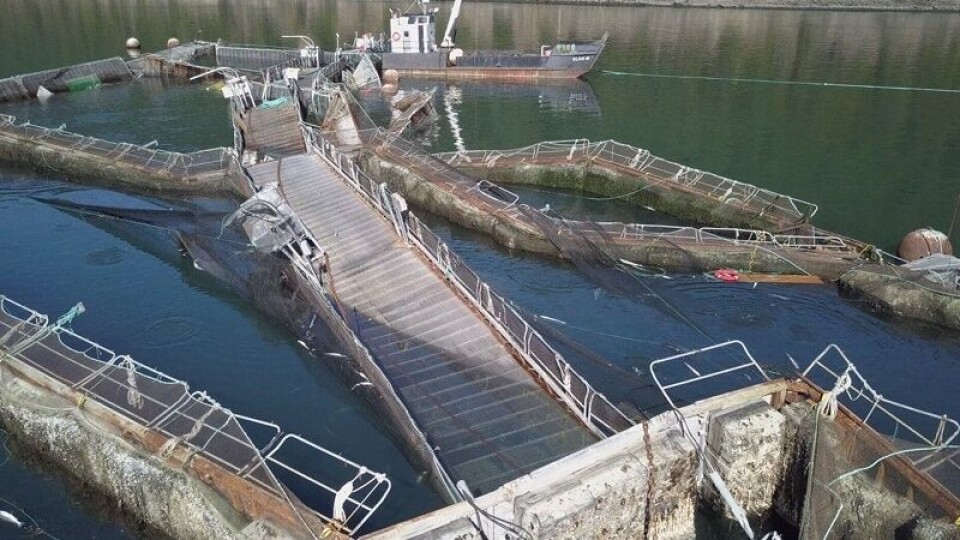
Cooke hit with $332,000 fine for US fish escape
Cooke Aquaculture Pacific has been fined $332,000 (£233,000) by the Washington state Department of Ecology for the negligent release of Atlantic salmon into Puget Sound.
Cooke was judged to have violated its water quality permit leading up to, and during, the collapse of its entire Cypress Island No.2 net pen salmon farm in August 2017.

“This investigation confirms Cooke Aquaculture was negligent in operating its net pen,” said ecology director Maia Bellon. “What’s even worse is that Cooke absolutely could have – and should have – prevented this incident.”
Specifically, Cooke has been fined for violating the following conditions of its water quality permit:
- Poor net cleaning and maintenance
- Failing to follow required protocol for repairs
- Insufficient attention to engineering
In a press release, the Department of Ecology said the net pen structure suffered damage in late July 2017, but Cooke grossly underrepresented the severity of that event to Ecology and other regulatory agencies. It said shortcut repairs were then made without professional engineering review and failed.
The press release continued: "Poor maintenance led to excessive buildup of mussels, seaweed, and other marine life. A clean net weighs less than two tons. The investigation found that each of Cooke’s ten nets weighed more than 11 tons. This increased drag on the nets from currents and overpowered the anchoring system. This likely caused both the damage in July and the catastrophic failure in August."
Cooke has 30 days to appeal the fine to the Washington State Pollution Control Hearings Board.
Escape total disputed
How many of the 305,000 fish in the net pens escaped when the farm collapsed is disputed. A multi-agency investigation into the incident said Cooke reported harvesting/extracting 145,000 fish from the collapsed net pen, but concluded that Cooke could only have extracted 42,000 to 62,000 fish.
It estimated that between 243,000 and 263,000 fish actually escaped, much higher than the original figure of 160,000 based on Cooke's reports. Between 186,000 and 206,000 Atlantic salmon remain unaccounted for, according to the investigators.
They also say that an “exoskeleton” of chains installed by Cooke in response to the July incident and intended to reduce the strain on the connection points between the net pen and the moorings may actually have contributed to the collapse by placing atypical loads on the farm structure.
Flawed estimate
Cooke has condemned the report as incomplete, inaccurate and misleading. It said Cooke employees counted each fish as it was recovered under the state’s supervision. The report’s estimate, meanwhile, was based on a flawed estimate of the average weight of the recovered fish.
“The same people that supervised and approved the counting of the fish created this new analysis, based on back-of-the-envelope math involving the capacity of a tender vessel and the ridiculous notion that the recovered fish weighed seven pounds apiece,” said Cooke press spokesman Joel Richardson said. “As the photographs in the report itself show, many of the fish were severely damaged by the time they were recovered and would have been far lighter.”
Canadian-owned Cooke spent $70 million acquiring its sites in Washington state in 2016. The company also farms salmon in the eastern state of Maine, as well as Canada, Scotland and Chile.




















































